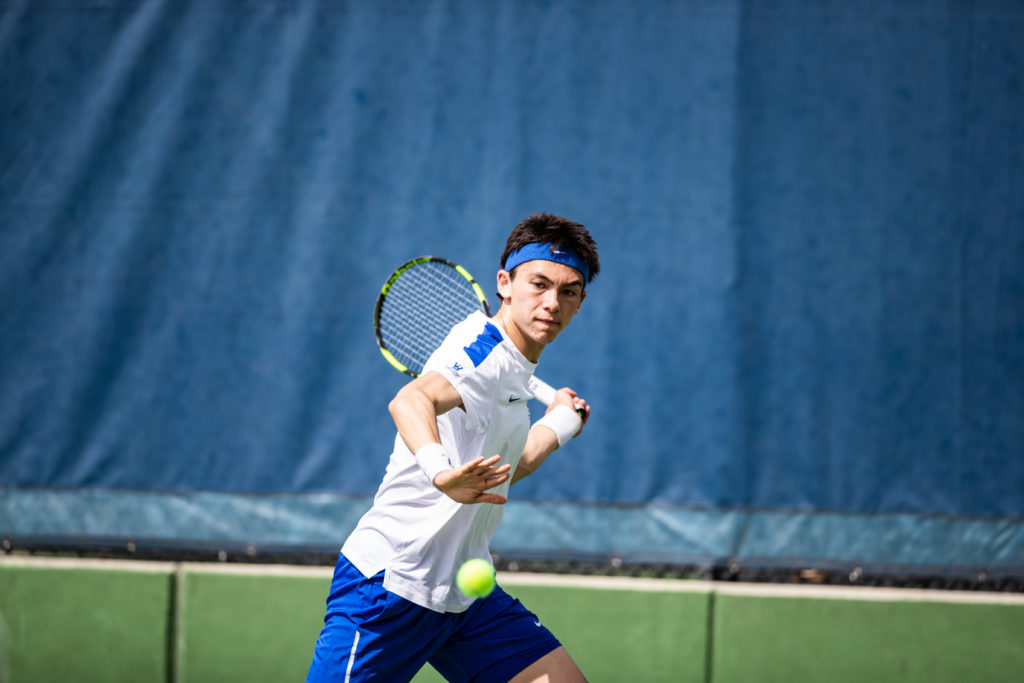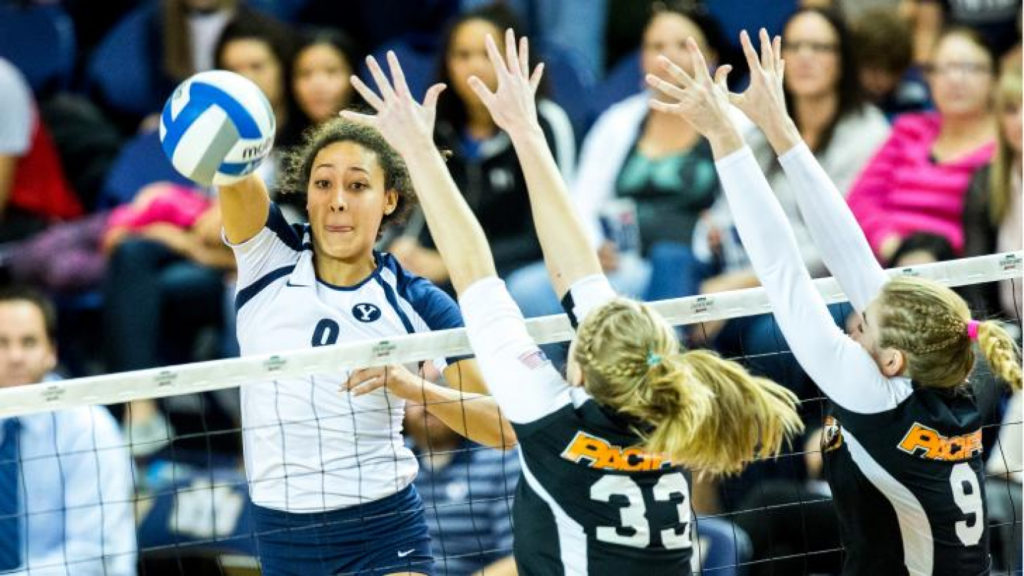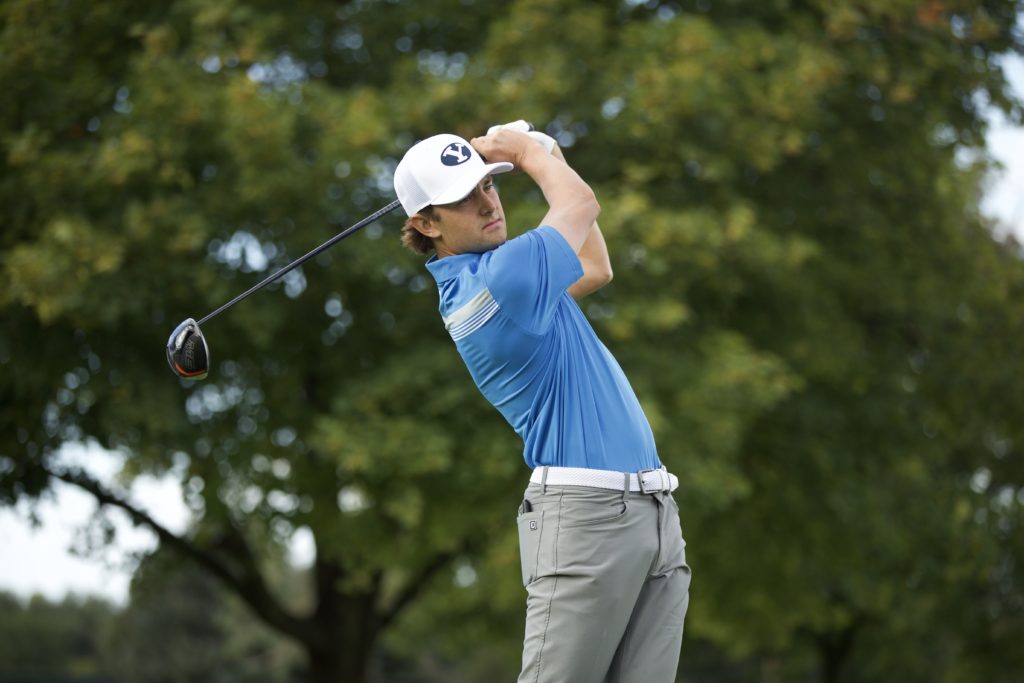When BYU men’s tennis player Sean Hill first held a tennis racket for the first time, he never would have imagined that one day he would get paid for his image and likeness as a collegiate athlete.
A decision made by the NCAA in October 2019 will provide opportunities for any NCAA athlete to be endorsed for use of the athlete’s name, image or likeness, an action previously prohibited by NCAA regulation. The change will affect BYU’s 21 NCAA teams and hundreds of student athletes.
Hill began competing in the International Tennis Federation Junior Circuit at age 15. He finished his high school career ranking as one of the nation’s top 75 players. In his first year playing for BYU, he came out with a win over the No. 1 seed in the 2017 Mountain Regional Championships. During his junior year at BYU, Hill opened the season nationally ranked in singles and doubles.
Hill has established a name for himself through his extraordinary college career, and soon that could be monetarily rewarded through the changes in the NCAA Paid to Play Act.

The dream of getting paid as a collegiate athlete may soon be a reality for players like Hill, but will remain a dream for the majority of college athletes.
BYU’s Associate Athletic Director Chad Lewis said many athletes assume they will get paid, but only the top players will be able to make money off of their image and likeness. This change may create challenges within teams.
“What will it do to the locker room if a quarterback comes in with a $300,000,000 check in his pocket and a new car out in the parking lot and his linemen don’t get anything?” Lewis asked.
“It could magnify any jealousy or could hurt the people that are not earning money even if they work as hard or harder than the higher profile or skilled athletes,” Hill said.
Hill expressed that some of the possible avenues for him to make money off of his image and likeness could be through accepting endorsements from different companies and brands or running private tennis or sports camps because of his elite status in the sport.
But how do you keep a team unified when only a select few are getting paid?
“For me, it helps when I know my teammates off the court because if I just see them on the court, it is more a work-related thing. Hanging outside of the sport helps team bonding,” Hill said.
Former BYU athlete Alexa Gray played on the women’s volleyball team from 2012-2015 and now plays professionally. She said every player has a different role on their team.
“I think everybody knows their role on a team. You know there are top players on your team and it doesn’t really cause conflict,” Gray said. “We want our team to do well and so that is OK with us.”
Gray emphasized that everything, including getting paid to play, needs to be earned.
“Don’t expect it to be given to you,” Gray said. “You just have to work hard and try to be the best athlete you can so you can earn the right to get paid.”

Not every sport will be affected in the same way. BYU’s No. 1 men’s golf player Peter Kuest said it is hard to predict how players will respond to the changes.
“I think it could impact team dynamic and chemistry, but it also might not,” Kuest said. “In more individual sports like golf, then it is more about individual performance. If you play well then you can make more. In professional team sports it is used as more motivation for players to earn more and it doesn’t seem like it has an impact on the team dynamic and team chemistry.”

When it comes to team unity, Kuest suggested that players keep the amount of money they make private.
“It’s really a situation where anything can happen and we will just have to wait and see how it affects everything. Hopefully it is all positive,” Kuest said.
The specific impact of the NCAA changes in paying athletes is hard to grasp, but Hill, Gray and Kuest are hopeful that it will work out. There may be challenges along the way, but nothing that cannot be overcome.
The specific implementation details for BYU athletes are yet to be determined. “How the Fair Pay To Play Act — or the NCAA Board of Governor’s decision to permit students participating in athletics the opportunity to benefit from the use of their name, image and likeness — will affect collegiate athletics and BYU has yet to be seen. To comment would be purely speculative,” reads a statement from BYU Athletics.
“We are very aware of the Fair Pay To Play Act and the NCAA announcement in late October 2019 aimed at providing enhanced opportunities for student-athletes. Like all other college athletic departments, we will continue to follow the process closely and look forward to providing feedback as the NCAA attempts to design bylaws and policies that are both uniform and fair for all student-athletes and consistent with the college-athlete model.”




